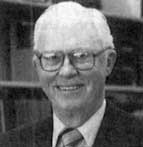One of our staff members is contributing considerably to a News Archiving service at Mu. Any well educated (Masters, PhD or above) users who wish to make comments on news sites, please contact Jim Burton directly rather than using this list, and we can work on maximising view count.
Floyd Martinson: Difference between revisions
No edit summary |
The Admins (talk | contribs) No edit summary |
||
| Line 43: | Line 43: | ||
==References== | ==References== | ||
[[Category:Official Encyclopedia]][[Category:People]][[Category:People: Academics]][[Category:Research]][[Category:Research: Broader Perspectives]][[Category:People: Deceased]][[Category:People: American | [[Category:Official Encyclopedia]][[Category:People]][[Category:People: Academics]][[Category:Research]][[Category:Research: Broader Perspectives]][[Category:People: Deceased]][[Category:People: American]] | ||
Revision as of 18:55, 13 May 2024

Floyd Mansfield Martinson (11 Nov 1916 - 23 Apr 2000) was a pioneer in child sexuality research, contributing more to that field than anyone else in his lifetime. 9 books and over 50 scholarly papers are among his contributions, many of which are available on Ipce.[1] He was the fourth person to receive the Society for the Scientific Study of Sexuality's Kinsey Award.[2]
Martinson held liberal views on intergenerational intimacy:
- Commentators on this subject like Floyd Martinson, sociologist at Minnesota’s Gustavus Adolphus College, emphasize the quality of the adult-child relationship. "Intimate human relations are important and precious. I'd like to see as few restrictions placed on them as possible."
From Cradle-to-Grave Intimacy: Some Researchers Openly Argue That 'Anything Goes' for Children, quoted in Martinson's autobiography.[3]
Examples of Martinson's publications
- Floyd M. Martinson. "The Sexual Life of Children", Bergin & Garvey, 1994, ISBN: 089789376X,9780897893763
- Publisher's description:
This book traces the development of sexuality in the child from the prenatal, through birth and up to puberty and adolescence. Very little has been written about children's sexuality in spite of a large literature on child abuse. Western society has been slow to recognize sexual experiences and conceptualizations as an important part of a child's development. This is the only work that has been written in a frank and open manner about the many sexual encounters that children have on a daily basis as part of their normal psychological development. Martinson's study is unique in that children speak for themselves in telling about their explorations, confusions, fears, and satisfactions. The book traces the life of children in their day-to-day encounters as they grow and develop. It complements and rounds out Robert Coles's important works on The Moral Life of Children, The Political Life of Children, and The Spiritual Life of Children.
- Themes (gleaned from list of contents):
- Chapter 1 Early Development And Experience
- Chapter 2 Self-Stimulation
- Chapter 3 Sex Play in Childhood and Preadolescence
- Chapter 4 Same-Sex Sex Play
- Chapter 5 Dreams, Fantasies, and Myths
- Chapter 6 Sexual Encounters with Older Children, Adolescents, and Adults
- Chapter 7 Sexuality Education
- Chapter 8 Children and the Law
- Chapter 9 The Sexual Life of Children: Sweden and the United States
- Floyd M. Martinson, "Infant and Child Sexuality: A Sociological Perspective", The Book Mark, USA, 1973.
- Themes (gleaned from list of contents):
- The Sexual Capacity of Infants, their Genital Play [Masturbation], Infant-Other Interaction, Infant-Infant Sexual Encounters, Infant Encounters With Children and Adolescents, Results of Infant Sexual Encounters.
- Sexual Encounters With Peers In Early Childhood, Homosexual Sexual Encounters With Peers In Early Childhood, Sexual Encounters In Early Childhood With Preadolescents and Adolescents, Sexual Encounters With Parents In Early Childhood, Sexual Encounters In Early Childhood With Adults Other Than Parents, Results of Sexual Encounters In Early Childhood.
- Preadolescent Sexual Encounters, First Paired Dating, Going Steady, Sexual-Erotic Encounters, Homosexual Activity, Peers As Sex Educators, Sexual Encounters With Older Youth, Preadolescent-Parent Sexual Encounters, Preadolescents and Incestuous Relationships With Siblings and Parents, Preadolescent-Other Adult Sexual Encounters, Other Adult-Sponsored Controls On the Sexual Encounters Of Preadolescents, Preadolescent-Animal Sexual Encounters, Outcomes of Preadolescent Sexual Encounters.
- Martinson, Floyd M. (1981). “The Sex Education of Young Children”, in Sex Education in the Eighties The Challenge of Healthy Sexual Evolution, ed. by Lorna Brown (Plenum Press: New York), pp. 51-82.
- “What sexual capacity, anatomical, physiological, or psychological, does the child possess that could result in sexual interest, behavior, and learning during the earliest years of life? Sexual capacities and their rehearsal are apparent in the infant long before the development of self-consciousness or erotic awakening. Knowledge of such capacity has existed for a very long time. For example, Pouillet reported research that showed the erectal capacity of infant boys almost 100 years ago, noting that all boys exhibited the faculty for erection if the edge of the foreskin of the penis was tickled with a feather (Pouillet, 1883, p. 99).
- Parents, particularly mothers, are a major source of the knowledge that boy babies commonly have spontaneous erections under a variety of conditions-a full bladder, during bathing, during sleep (Conn & Kanner, 1947, p. 339). In a study of nine male babies aged 3 to 20 weeks, Halverson (1940) reported tumescence (penile erection) at least once daily in seven of the nine. Individual responses varied from 5 to 40 erections per day. Tumescence was often accompanied by restlessness, fretting, crying, stretching, and stiffly flexing the limbs. Following detumescence, behavior was in the nature of playful activity or relaxation. In many societies genital stimulation has been used to subdue and relax infants."
External links
- The Sexual Life of Children, 1994. PDF version at Libgen, Epub version at Annas-archive
- Infant and Child Sexuality: A Sociological Perspective, 1973. At Ipce
